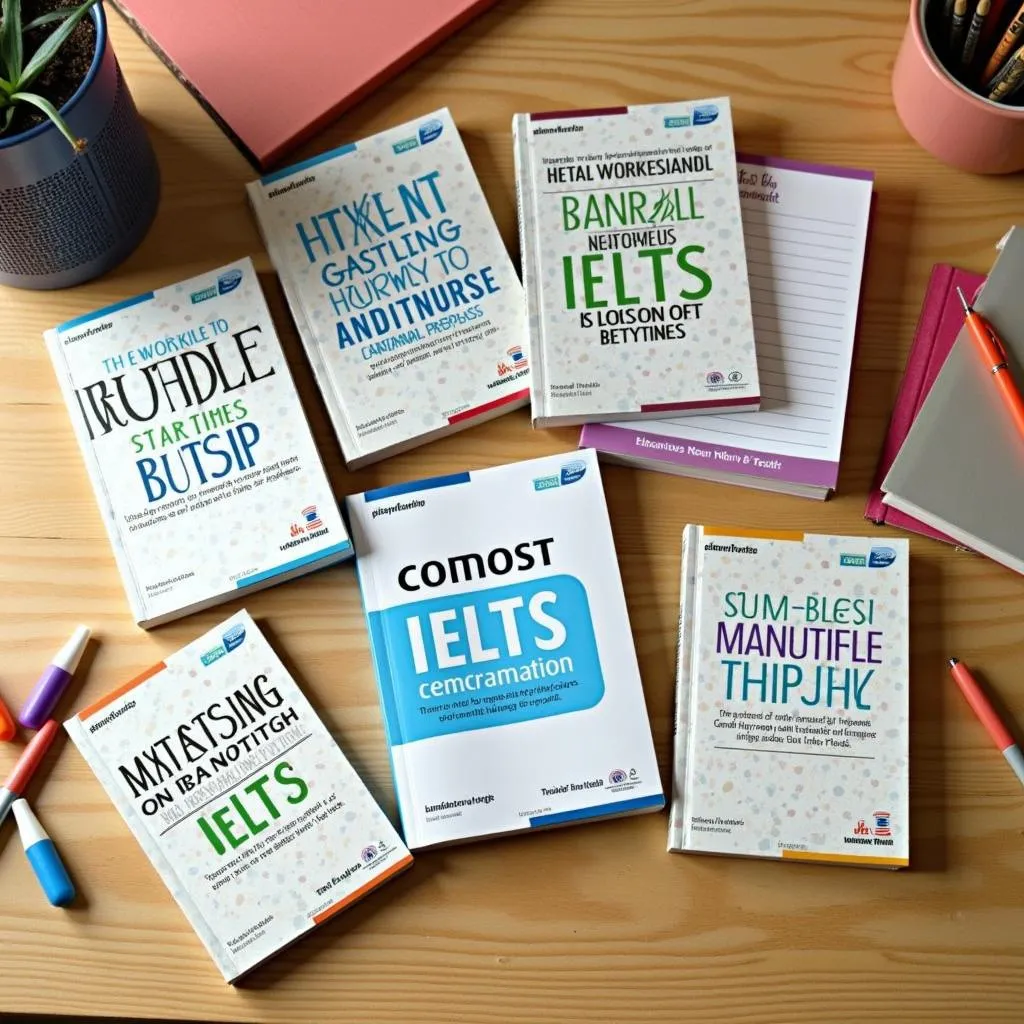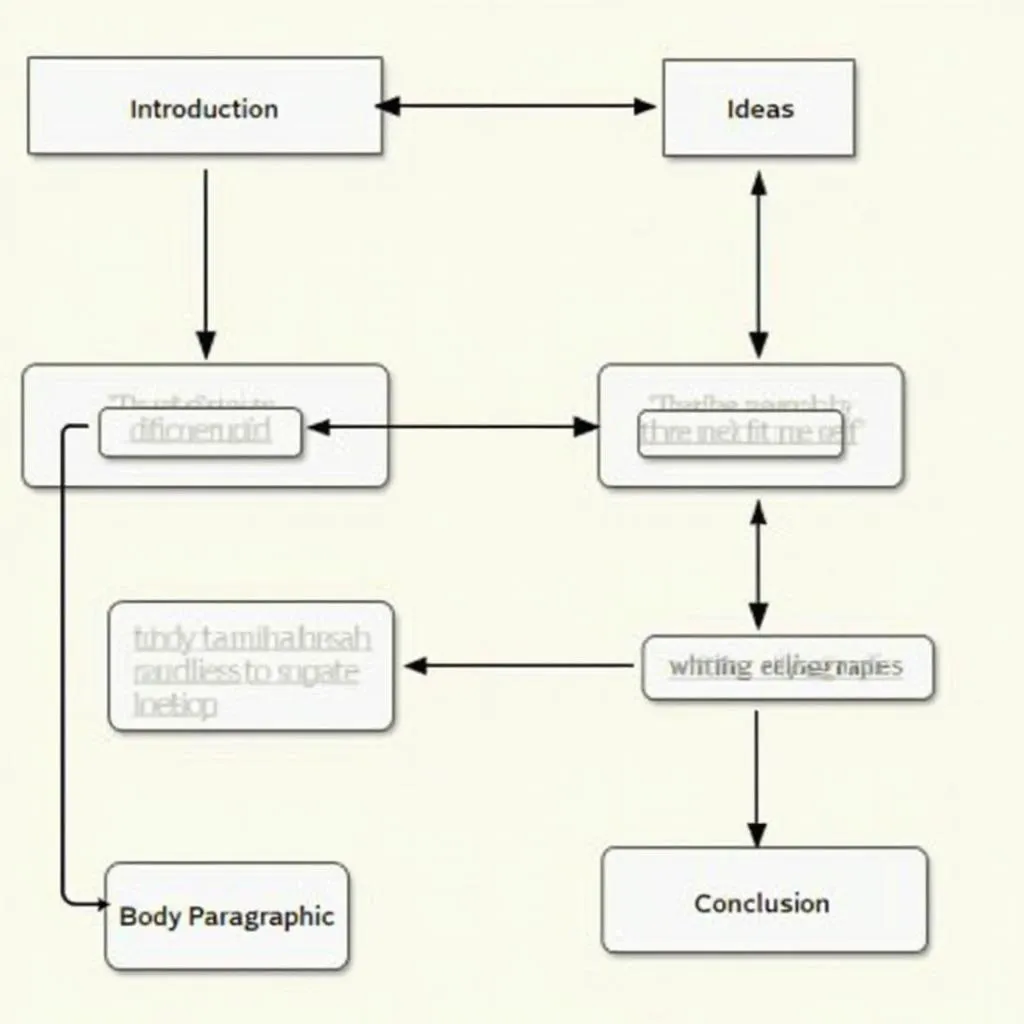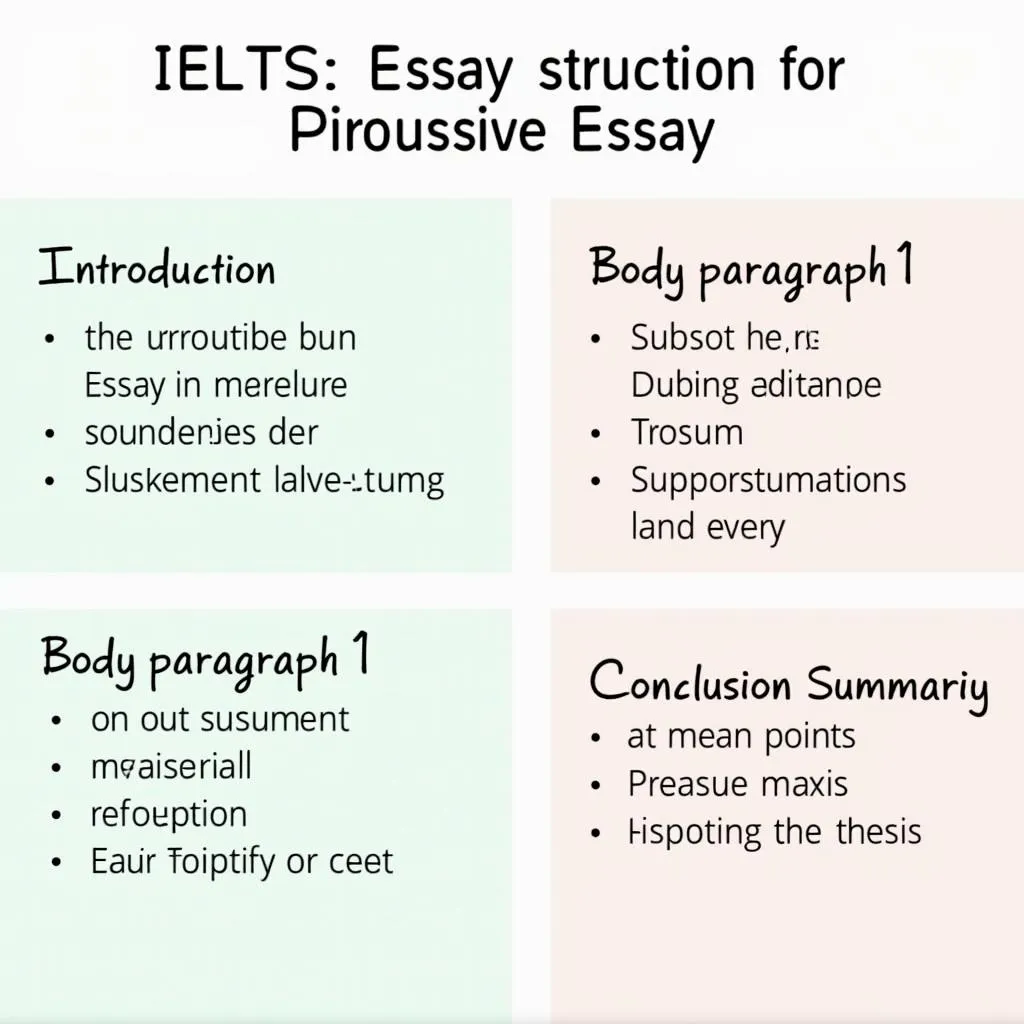Why Vocabulary Matters in IELTS Writing Task 2
Vocabulary plays a crucial role in IELTS Writing Task 2, as it directly impacts your Lexical Resource score. A wide range of accurate and appropriate vocabulary can significantly enhance your essay’s quality, helping you express ideas more precisely and convincingly. Moreover, using advanced vocabulary demonstrates your language proficiency to the examiner, potentially leading to a higher band score.
Nội dung bài viết
- Why Vocabulary Matters in IELTS Writing Task 2
- Key Benefits of Expanding Your Vocabulary
- Essential Vocabulary Categories for IELTS Writing Task 2
- 1. Opinion and Stance Words
- 2. Comparison and Contrast Words
- 3. Cause and Effect Words
- 4. Emphasis and Example Words
- Advanced Vocabulary for Specific Topics
- Environment and Climate Change
- Technology and Society
- Education and Learning
- Globalization and Culture
- Tips for Using Advanced Vocabulary Effectively
- Conclusion
Key Benefits of Expanding Your Vocabulary
- Improved clarity and precision in expressing complex ideas
- Enhanced ability to paraphrase and avoid repetition
- Increased sophistication in your writing style
- Better engagement with the task prompt and development of arguments
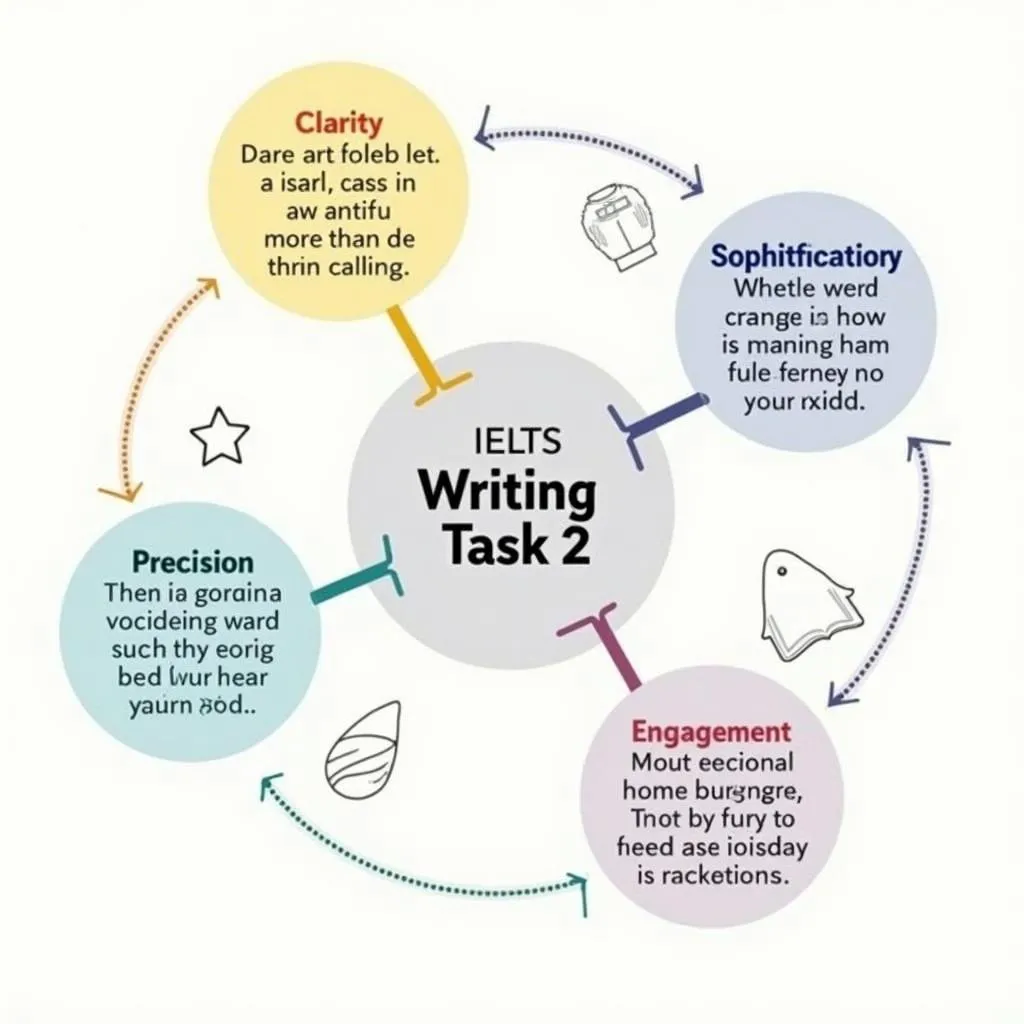 Importance of vocabulary in IELTS Writing Task 2
Importance of vocabulary in IELTS Writing Task 2
Essential Vocabulary Categories for IELTS Writing Task 2
To excel in IELTS Writing Task 2, it’s crucial to master vocabulary across various categories. Here are some key areas to focus on:
1. Opinion and Stance Words
These words help you express your viewpoint clearly and effectively:
- In my opinion
- I believe that
- From my perspective
- It is evident that
- Undoubtedly
- Arguably
Example: “In my opinion, the widespread adoption of renewable energy sources is crucial for combating climate change.”
2. Comparison and Contrast Words
Use these to compare and contrast different ideas or arguments:
- Similarly
- In contrast
- On the other hand
- Whereas
- Despite this
- Nevertheless
Example: “While some argue that technology enhances education, others believe it can be a distraction. Nevertheless, the benefits of digital learning tools often outweigh their potential drawbacks.”
3. Cause and Effect Words
These words help you explain relationships between ideas:
- Consequently
- As a result
- Due to
- Therefore
- Thus
- Hence
Example: “The rapid urbanization in many developing countries has led to increased pollution. Consequently, governments must implement stricter environmental regulations.”
4. Emphasis and Example Words
Use these to highlight important points or provide examples:
- Significantly
- Notably
- Particularly
- For instance
- Such as
- To illustrate
Example: “Many factors contribute to job satisfaction, particularly work-life balance and opportunities for professional growth.”
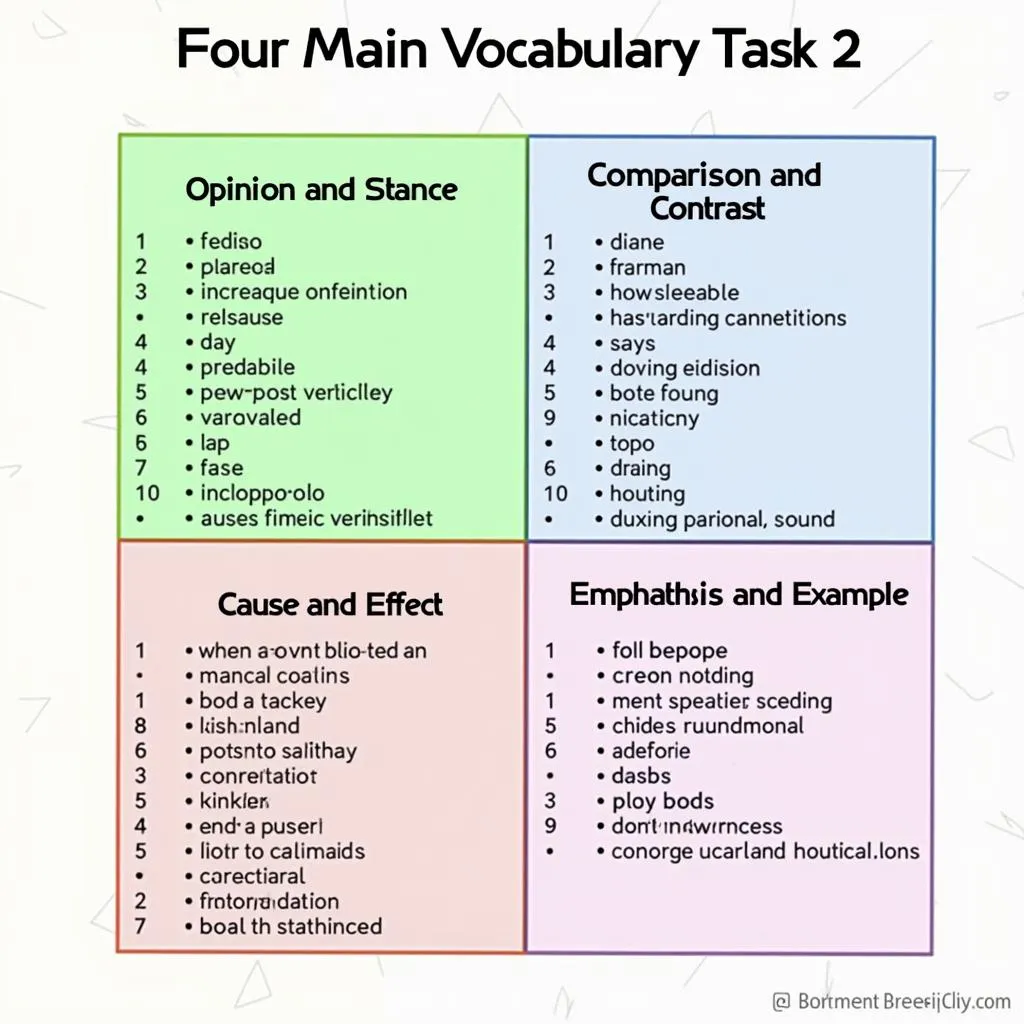 Essential vocabulary categories for IELTS Writing Task 2
Essential vocabulary categories for IELTS Writing Task 2
Advanced Vocabulary for Specific Topics
To further enhance your IELTS Writing Task 2 essays, consider incorporating topic-specific vocabulary. Here are some examples for common IELTS topics:
Environment and Climate Change
- Biodiversity
- Sustainable development
- Carbon footprint
- Renewable resources
- Ecological balance
- Climate mitigation
Example: “Implementing sustainable development practices is essential for preserving biodiversity and maintaining ecological balance.”
Technology and Society
- Artificial intelligence
- Digital literacy
- Cybersecurity
- Technological innovation
- Social media influence
- Data privacy
Example: “The rapid advancement of artificial intelligence has raised concerns about data privacy and job displacement in various industries.”
Education and Learning
- Curriculum development
- Lifelong learning
- Critical thinking skills
- Vocational training
- Inclusive education
- Pedagogical approaches
Example: “Modern education systems should focus on developing critical thinking skills and promoting lifelong learning to prepare students for an ever-changing job market.”
Globalization and Culture
- Cultural assimilation
- Cross-cultural communication
- Global economy
- Cultural heritage preservation
- Multicultural society
- International cooperation
Example: “While globalization has facilitated international cooperation, it has also led to concerns about cultural assimilation and the preservation of local traditions.”
Tips for Using Advanced Vocabulary Effectively
-
Context is key: Ensure that you use advanced vocabulary in the appropriate context to maintain coherence and clarity in your writing.
-
Avoid overuse: While it’s important to demonstrate a wide vocabulary range, overusing complex words can make your essay sound unnatural or forced.
-
Practice collocations: Learn and use common word combinations to make your writing sound more natural and fluent.
-
Paraphrase effectively: Use your expanded vocabulary to paraphrase ideas and avoid repetition throughout your essay.
-
Balance with simpler language: Combine advanced vocabulary with simpler language to maintain readability and flow in your writing.
-
Read widely: Expose yourself to a variety of texts on different topics to naturally expand your vocabulary and understand how words are used in context.
-
Use examples: When introducing a new or complex term, provide a brief example or explanation to demonstrate your understanding of the word.
Conclusion
Mastering a wide range of vocabulary is essential for success in IELTS Writing Task 2. By incorporating opinion and stance words, comparison and contrast phrases, cause and effect language, and emphasis and example vocabulary, you can significantly enhance the quality of your essays. Additionally, learning topic-specific vocabulary will allow you to engage more effectively with various IELTS prompts. Remember to use advanced vocabulary judiciously, always prioritizing clarity and coherence in your writing. With consistent practice and exposure to diverse vocabulary, you’ll be well-equipped to tackle any IELTS Writing Task 2 prompt with confidence and precision.
